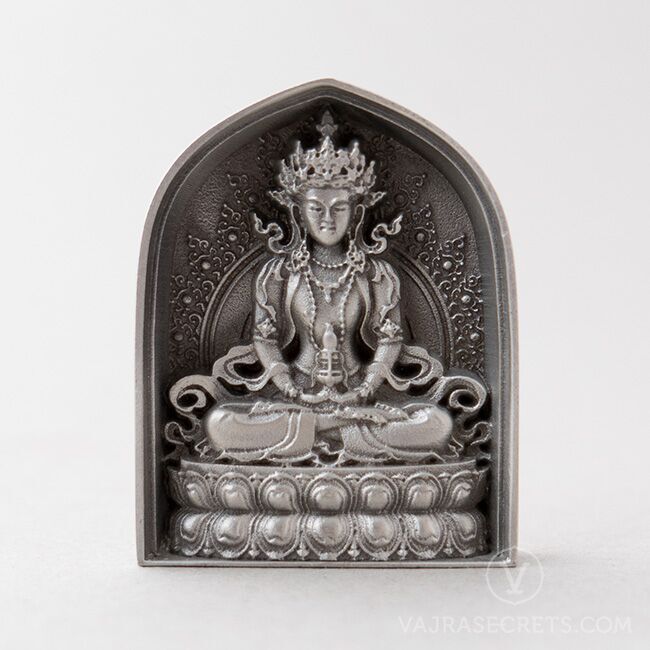Buddha statues are usually filled with mantras, holy items and other substances to exponentially multiply their blessings. However, not everyone has access to a lama or Dharma centre that can perform a traditional insertion and consecration ceremony. So we've put together a DIY Statue Insertion Kit that includes the basic items you'll need to purify, fill and bless your statue or stupa in the traditional manner.
Each small statue insertion kit includes:
- H.H. Dalai Lama Mani Rilbus x 1 pill
- H.E. Tsem Rinpoche Holy Rilbus x 1 pill
- H.E. Tsem Rinpoche’s Blessed Robes x 1 piece
- Protector Rice x 1 grain
- Protector String (blue) x 1
- Anywhere Mantra Rolls x 3
- Incense powder 10g
- Sangdruk
- Phajung Powder
- Saffron
- Yellow cloth
- Illustrated step-by-step guide (downloadable)
Recommended for statues 4" and below.
Buddha statues are the focal point of most Buddhist altars. They are a visual aid for daily meditative practices, they serve as the object of offering for the collection of merits, and they bless the surrounding environment and all who see them.
Most statues have a hollow body and base, which is considered inauspicious if left empty. Therefore, in the Tibetan Buddhist tradition, Buddha statues are always filled with mantras, holy items such as relics, precious pills & protector rice, and other substances such as incense, medicinal herbs & dried flowers before being blessed and consecrated.
In this manner, the blessings of the Buddha statue are multiplied exponentially as every action is performed in relations to a multitude of holy objects instead of just one.
Most statues have a hollow body and base, which is considered inauspicious if left empty. Therefore, in the Tibetan Buddhist tradition, Buddha statues are always filled with mantras, holy items such as relics, precious pills & protector rice, and other substances such as incense, medicinal herbs & dried flowers before being blessed and consecrated.
In this manner, the blessings of the Buddha statue are multiplied exponentially as every action is performed in relations to a multitude of holy objects instead of just one.
Further Reading
You may also like
More from Statues
Recently viewed




















